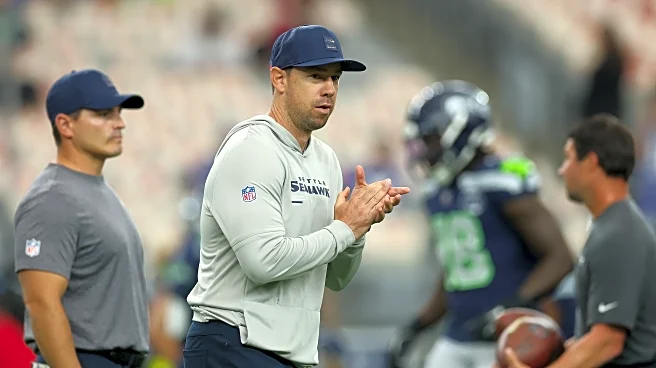What is the story about?
What's Happening?
Littler, a labor and employment law practice, has released its 2025 Labor Survey Report, revealing a significant gap in preparedness among U.S. employers facing union organizing activities. The report, based on insights from nearly 800 respondents, indicates that only 9% of non-unionized employers feel very prepared to respond to union organizing, while just 18% of those with unionized employees feel ready to handle aggressive collective bargaining tactics. The survey highlights that unions are increasingly targeting industries traditionally resistant to unionization, using high-profile campaigns and strikes to gain attention. Key drivers for employee support of union efforts include work/life balance, input into business decisions, and job security.
Why It's Important?
The findings underscore a critical challenge for U.S. employers as they navigate a changing labor landscape. With unions focusing on giving employees a greater voice, companies may face increased pressure to adapt their engagement strategies. The report suggests that employers who prioritize direct relationships with employees and enhance engagement programs may better address unionization efforts. The growing presence of Gen Z in the workforce, with their desire for input into strategic decisions, further complicates the situation, potentially leading to more organizing activity. Employers must consider these dynamics to mitigate risks and maintain operational stability.
What's Next?
Employers are advised to develop comprehensive contingency plans for strikes and business disruptions, as well as strategic analyses for bargaining. Enhancing employee engagement programs and training managers are recommended steps to improve preparedness. As union leaders become more confrontational, companies must ensure their strategies are lawful and effective. The report suggests that establishing employee voice programs could be a key tactic for employers to improve operations and meet employee demands for engagement.
Beyond the Headlines
The report highlights a cultural shift in the workforce, with younger employees seeking more involvement in business decisions. This trend may lead to long-term changes in how companies approach labor relations and employee engagement. Employers must balance the benefits of union representation with potential drawbacks, such as union dues, to maintain a productive workforce.


















